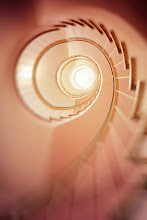The Sound of Photos in Father’s Studio
Photographs; they capture a moment and sometimes even an emotion. They are so important to us because we can never regain this exact time or the people. How many of us would stop and stay present in the moment when these photos were taken in order to fully appreciate their importance? The Chinese film Father's Studio 爸爸的照相馆 is a deeply moving tale which informs and warns the viewer to not take these “snapshots” of life for granted. It’s fitting that moving pictures like this which employ sound are able to transfer a layer of emotions which are multisensory while pointing us back to how photos are deeply meaningful for the family depicted in this film as well as each of us.
Father’s Studio is not really about photography; it’s about defining one’s self. Early in the film, we learn that the patriarch of this family has only days left to live. His terminal disease has become aggressive and the father’s attempts to conceal it from his family will end as soon as his own existence. Still in what appears to be his late 30’s, his teenage children are consumed with themselves and their friends. On the day of his son’s graduation, the father asks his son to take a photo with him to commemorate the day. The teen boy is unaware that in weeks, this photo will be one of the final memories he shares with his father. The youth speeds off with his friend on a motor scooter without taking the photo, leaving the father alone with knowledge that he is truly alone in his final days. The last chapter of the film is void of any dialogue yet speaks more loudly than any other part of the story. As the son explores his father’s work and even dons his eyeglasses, he begins to understand the moments he carelessly cast aside. The visual aspect of the story is perfectly complemented by the music and subtle sounds which empower it.
With a very curt schedule for completing this film, Director Xinyi Tang reached out to acclaimed sound designer and supervising sound editor Peggy [Peiqi] Duan to oversee ADR and give a boost to the sonic-emotional presence of the story. The award-nominated Duan used a light touch in this role which matched the subdued interaction of so many characters in the film. These gentle moments exponentially magnify the mood such as when the father’s friend comes to visit and his words trail off to a muted mumble, only to be propelled back into lucidity by the approach of passing vehicles. Peggy’s work on Father’s Studio is akin to lowering one’s own voice to a whisper and thus controlling the level of volume in the room; it is simultaneously powerful and gentle. Duan’s expert approach is a lesson in maturity for sound design. While still quite young she exhibits all of the insight of a professional decades her senior.
In Father’s Studio, the filmmakers have presented a deeply moving story which lulls the viewer willingly into each sorrowful moment. There are no overly dramatic moments or boisterous string arrangements prompting or careening us into the desired direction. In the most remarkable of ways, the sounds and the sights speak softly like a drifting wave that unconsciously transports us to an altogether different location.
Author: Kelly King










Leave a Comment